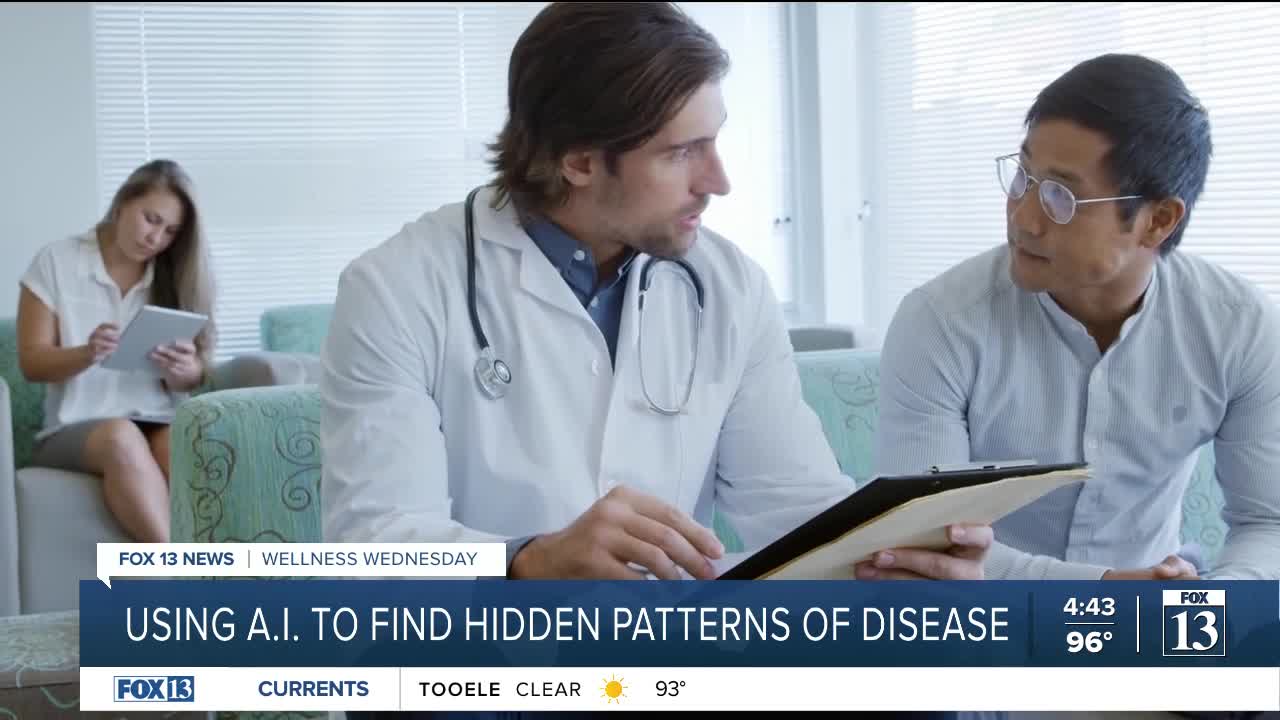There are still gaps in our understanding of some devastating killers. One virus might attack one person differently than it attacks another. Sometimes a list of similar symptoms can have very different causes.
One local doctor is working to harness Artificial Intelligence to tame a devastating condition.
A simple scenario…you fall down the stairs.
The symptoms afterwards – inability to walk, dizziness, and pain.
Your doctor says all those symptoms are part of FEDS – Fell Down Stairs Syndrome.
Thankfully, doctors wouldn’t really say that. They will usually have precise ways to zero in on what is going on with your body.
The symptoms described are a little like the real condition called Acute Respiratory Distress Syndrome, or ARDS.
ARDS is the way hospitals describe a situation when our lungs are so inflamed, we can’t survive without life support.
ARDS found a devastatingly effective ally in COVID-19, “because that’s how COVID killed most people.”
Dr. Samuel Brown is the Vice President for Research at Intermountain Health. He and other doctors see ARDS as something of a smokescreen. If the smoke isn’t cleared, it’s difficult to get the killers hiding within.
“We’ve treated it for decades, but suddenly with COVID everybody had ARDS. And that was something that really got people thinking much harder than they had been before,” said Brown.
Remember our fictional ‘Fell Down Stairs Syndrome’? We need to know if we are immobilized because we broke our back or sprained our ankle. Are we dizzy because of tumbling around in the fall, or do we have a concussion? Where is the pain?
“Instead of flailing around with this nebulous syndrome, actually have concrete disease types, that we can communicate around with patients and families, and crucially, that we can then use to find biological treatments to improve their outcomes,” said Brown.
But ARDS happens at a molecular level within a host of the body’s most complex systems.
“…Somebody who's sick with ARDS, the amount of biological information that gets generated every 10 minutes is astronomical,” said Brown.
So Intermountain Medical Center is one of six national hubs asking artificial intelligence to do the grunt work of finding patterns in those mountains of data.
“Pattern recognition, again, is taking a giant cornucopia of fruit, that historically we've all just seen as apples, and figuring out which actually are apples, which have oranges, which are grapefruits. But that's what we do,” said Brown.
Out of complexity, the goal is all about something so many of us have experienced.
When you go into that setting, what you're desperate for the doctor to know why your loved one is a particular case, why they’re special, this is what they’ve gone through, and this is how they’re different now than before this happened. What researchers are talking about is a way to understand ARDS medically.
“I think you're totally right,” said Brown. “Because fundamentally, your question you're asking is, why? And what comes next? Why, in a sense of what's the what's the steps biologically that happened to put you where you are…”
According to Intermountain, the consortium of hospitals participating in this research project hope to enroll 5,000 patients over the next five years.




